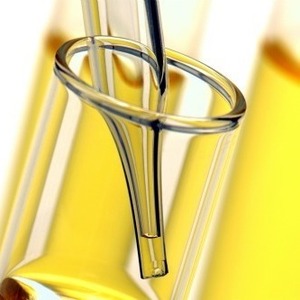Braskem, Haldor Topsoe sign partnership to develop biobased MEG




November 13, 2017
BY Braskem
Braskem, the Americas' leading producer of thermoplastic resins, and Danish-based Haldor Topsoe, a world leader in catalysts and surface science, have signed a technological cooperation agreement to develop a pioneering route to produce monoethylene glycol (MEG) from sugar. The agreement calls for the construction of a demonstration plant in Denmark, with operation slated to begin in 2019.
MEG is a key component of PET resin, the main man-made raw material used by the textile and packaging industries that is also widely used to make bottles. The project is based on a two-step process developed at Topsoe's labs along with own catalysts, and focuses on the conversion of sugar into MEG at a single industrial unit, which will reduce initial investment in the production and boost the competitiveness of the process.
Advertisement
Advertisement
"This novel biobased initiative allies a cutting-edge technology with deep expertise in process design, scale-up and industrial operation, which will allow us to push the renewable chemistry to a whole new level. After the Green Polyethylene, this is another major step forward in our vision of using renewable polymers as a carbon capture tool and keep contributing to a more sustainable future," said Mateus Lopes, head of innovation in renewable chemicals at Braskem.
With the agreement, Braskem wants to expand its portfolio of renewable products to offer new solutions that complement its biobased polyethylene marketed with the I'm green seal. "With this new partnership, we strengthen our position as protagonists in the development of innovative solutions that will leverage the competitiveness of different biomasses and complement the traditional solutions offered by the petrochemical industry," said Gustavo Sergi, director of renewable chemicals at Braskem.
"Catalysis will play an extremely important role in the development of sustainable solutions that produce important chemicals from renewable sources such as sugars. We are proud to deliver the ground-breaking technology for the project with Braskem, and we look forward to applying our world-leading competencies within catalysis and process engineering in the further commercialization of this important technology," said Kim Knudsen, executive vice president at Haldor Topsoe.
Advertisement
Advertisement
The demonstration plant will conduct tests to validate the technology and confirm its technical and economic feasibility, which is a critical step before launching production on an industrial scale and commercial operations. The unit will be flexible to validate the technology in different raw materials such as sucrose, dextrose and second-generation sugars.
Related Stories
The U.S. Department of Energy Bioenergy Technologies Office (BETO) announced up to $23 million in funding to support research and development (R&D) of domestic chemicals and fuels from biomass and waste resources.
The U.S. DOE has announced its intent to issue funding to support high-impact research and development (R&D) projects in two priority areas: sustainable propane and renewable chemicals and algal system cultivation and preprocessing.
Sens. Sherrod Brown, D-Ohio, and Pete Ricketts, R-Neb., in August introduced the Renewable Chemicals Act, a bill that aims to create a tax credit to support the production of biobased chemicals.
The Chemical Catalysis for Bioenergy Consortium, a consortium of the U.S. DOE’s Bioenergy Technologies Office, has launched an effort that aims to gather community input on the development of new biomass processing facilities.
USDA on March 8 celebrated the second annual National Biobased Products Day, a celebration to raise public awareness of biobased products, their benefits and their contributions to the U.S. economy and rural communities.
Upcoming Events










